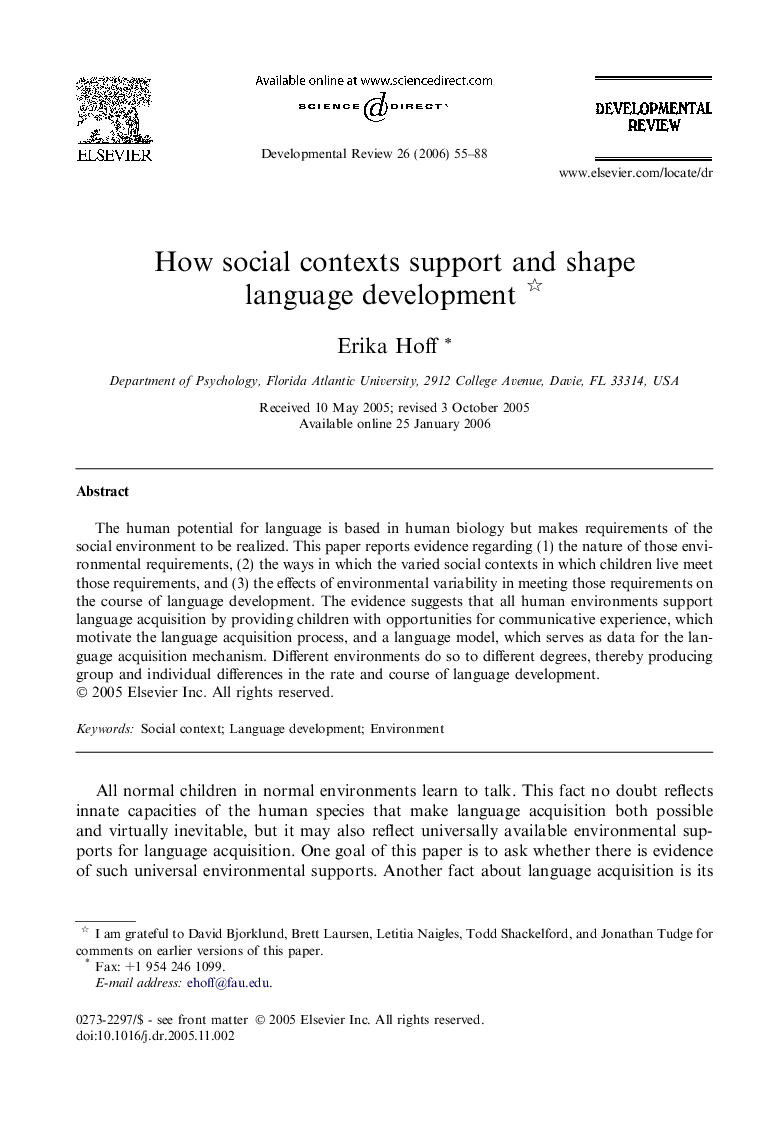| Article ID | Journal | Published Year | Pages | File Type |
|---|---|---|---|---|
| 353628 | Developmental Review | 2006 | 34 Pages |
The human potential for language is based in human biology but makes requirements of the social environment to be realized. This paper reports evidence regarding (1) the nature of those environmental requirements, (2) the ways in which the varied social contexts in which children live meet those requirements, and (3) the effects of environmental variability in meeting those requirements on the course of language development. The evidence suggests that all human environments support language acquisition by providing children with opportunities for communicative experience, which motivate the language acquisition process, and a language model, which serves as data for the language acquisition mechanism. Different environments do so to different degrees, thereby producing group and individual differences in the rate and course of language development.
